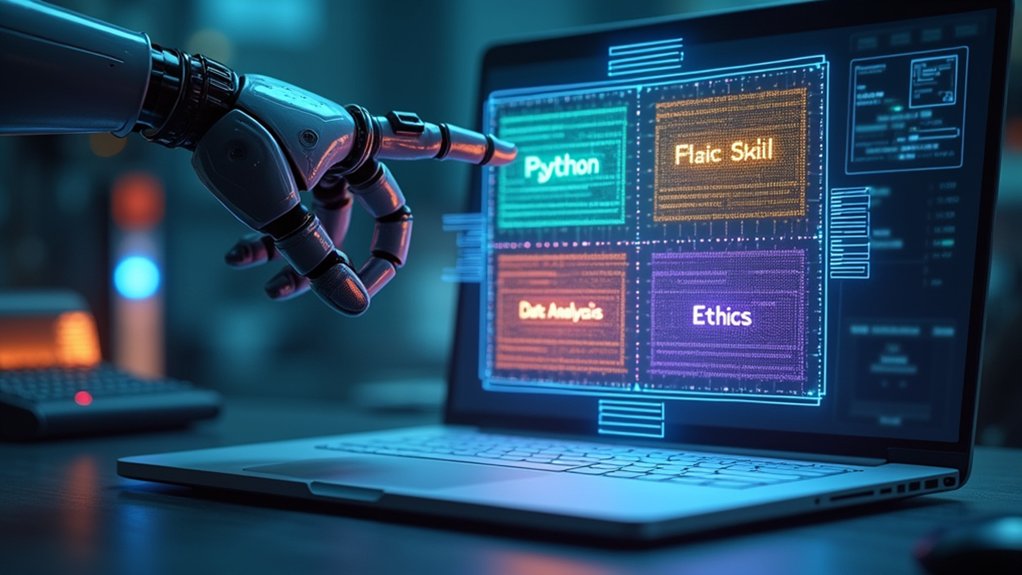As AI sweeps through college halls, 92% of students are now tapping into it for everything from quick fixes to full-blown assignments—up from just 66% in 2024. That’s a surge, folks, with 88% using generative AI for assessments, doubling from 53%. Students love it for saving time and boosting work quality. Wealthy kids and STEM whizzes are all in, riding the AI wave like it’s the latest trend.
But hold on, not everyone’s thrilled.
Discipline rates? Skyrocketing. From 48% to 64% in just a year, with 95% of students admitting to cheating—15% even peddling fake term papers. Institutions are flagging stuff left and right, like in the UK where 33% of submissions get hit, versus only 10% being AI-generated. Women are freaking out more than men, anxiety levels through the roof over misuse accusations.
Oh, the irony—tools meant to catch cheaters are stressing everyone out.
Educators aren’t sitting idle. Now, 68% use AI detection tools, up 30%, as staff literacy jumps from 18% to 42%. They’re scrambling to keep things honest amid this GenAI chaos. Regions vary wildly, though; the UK’s leading the plagiarism parade, while global regulators fumble for standards. Cultural vibes shape how schools crack down, creating a messy patchwork.
Ethical messes abound. Eighty-nine percent of students use ChatGPT for homework, yet over half worry about its fake or biased junk. Institutions push for clearer rules, with 80% of students saying their schools have policies now. But only 36% get help to learn AI skills, widening the divide. This lack of support means that only 36% of students have received institutional assistance for developing AI skills.
STEM and rich kids dominate usage, leaving others in the dust.
Demographic gaps sting. Women play it safe, cautious about risks, while guys barrel ahead. Policies focus on training, not bans, but disparities persist. AI’s reshaping integrity, for better or worse—time will tell if colleges can keep up. Furthermore, academic pressures play a significant role, as 71% of students cite the need for good grades as a primary driver of cheating behavior. Meanwhile, AI’s influence extends beyond education, with innovations like hyper-personalization enhancing efficiency in other sectors such as marketing.




